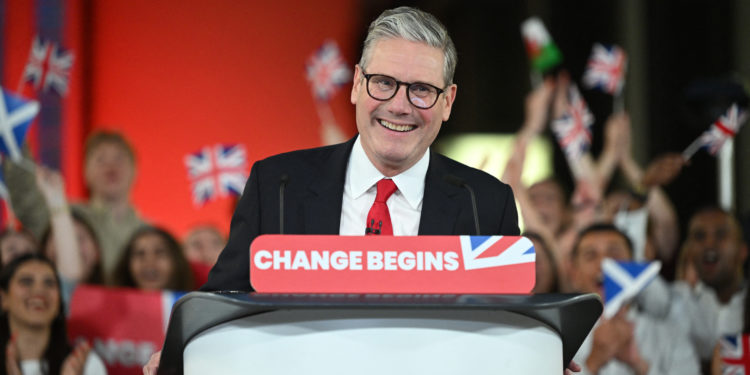Labour has secured a decisive victory in the UK general election, ending 14 years of Conservative rule and paving the way for Sir Keir Starmer to become the next prime minister.
The opposition party surpassed the 326-seat threshold required for a majority in the 650-seat House of Commons at 04:00 GMT on Friday. Exit polls project Labour to secure 410 seats, granting them a substantial 170-seat majority.
Rishi Sunak, the outgoing Conservative prime minister, conceded defeat and pledged a smooth transition of power. “The Labour Party has won this general election,” Mr Sunak stated after retaining his own seat. He described the results as “sobering” and accepted responsibility for his party’s performance.
The Conservative party is projected to win just 131 seats, its lowest tally since 1906. Several high-profile cabinet members, including Defence Secretary Grant Shapps and Commons leader Penny Mordaunt, lost their seats. Chancellor Jeremy Hunt narrowly retained his constituency by a margin of 891 votes.
Sir Keir, addressing supporters in London, promised “a decade of national renewal” while cautioning that change would not be immediate. The Labour leader, who has repositioned the party towards the centre since taking over from Jeremy Corbyn in 2020, emphasised putting “country first, party second”.
The election results mark a significant shift in UK politics, bucking the trend of right-wing gains seen in other Western democracies. The Liberal Democrats are projected to become the third-largest party with 61 seats, overtaking the Scottish National Party.
Nigel Farage’s Reform UK party is expected to win 13 seats, potentially influencing the future direction of the Conservative party. Mr Farage, who won his first parliamentary seat, stated his intention to “fill the massive gap on the centre-right of British politics”.
The incoming Labour government faces numerous challenges, including sluggish economic growth, strained public services, and a cost-of-living crisis. Sir Keir has also pledged to restore political integrity following a period of Conservative instability that saw three prime ministers in four months.
Financial markets will be closely watching Labour’s economic plans, particularly any shifts in fiscal policy or regulatory approach. The party has promised increased investment in public services and green technology, balanced against commitments to fiscal responsibility.


















